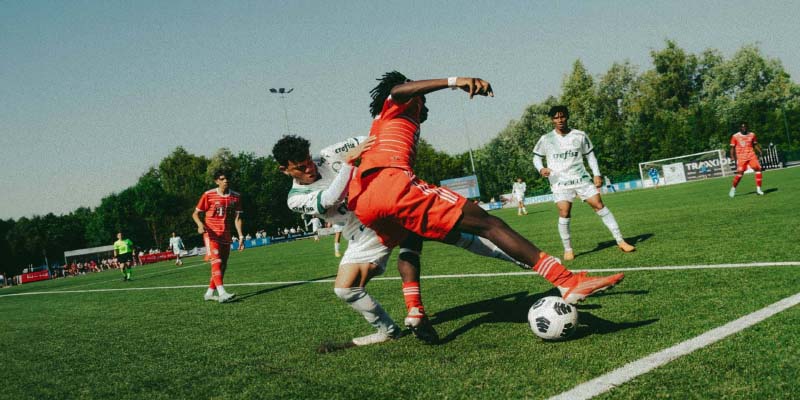Football (Soccer) is more than just a game; it’s an art that requires a blend of skill, strategy, and stamina. Whether you’re a novice trying to learn the ropes or a seasoned player looking to sharpen your abilities, engaging in targeted drills is essential to enhance your overall gameplay. This post will delve into various drills tailored for different skill levels, helping you boost your football (soccer) skills effectively.
Why Football Drills Are Important?
Drills are not merely repetitive exercises; they are foundational elements in the structure of training. This section will explore the multifaceted importance of engaging in football drills, and how they contribute to the development of individual players and teams alike.
Readmore: Link vào KUBET
Enhancing Technical Skills
Technical skills are the bedrock of any successful football (soccer) player. They encompass various aspects such as dribbling, passing, shooting, and ball control. Engaging in specific drills allows players to refine these skills, ensuring they perform at their best during matches.
For instance, dribbling drills focus on footwork and balance, which can drastically improve a player’s ability to maneuver around defenders. These drills often involve navigating through cones or practicing quick changes of direction, enhancing agility and coordination. As players become more proficient with their feet, they gain confidence to take on defenders and maintain possession under pressure.
Passing drills play an equally important role in technical skill enhancement. They teach players how to deliver accurate passes over varying distances while also mastering the timing and angle required for effective communication on the pitch. Understanding the nuances of passing creates a seamless flow in team dynamics, making it easier to create goal-scoring opportunities.
Shooting drills are vital too, as they allow players to practice striking the ball with precision. By focusing on technique and accuracy, players learn to choose the right moment to shoot, ultimately increasing their chances of scoring during competitive matches. A well-drilled forward will possess the technical skills necessary to find the back of the net consistently.
Improving Team Coordination
In football (soccer), it’s not just about individual brilliance; teamwork is paramount. Coordinating movements between players is essential to executing strategies and creating scoring opportunities. Well-structured drills foster an environment where players learn to communicate, anticipate each other’s movements, and build chemistry.
One effective way to improve coordination is through small-sided games. These sessions encourage quick decision-making and promote spatial awareness among players. When players are placed in tighter spaces, they must rely on one another to maintain possession and work cohesively to break down defenses. The increased interaction between teammates nurtures understanding, resulting in improved performance during actual matches.
Drills that emphasize positional play also help players understand their roles within the team structure. By practicing formations and movement patterns, players learn how to position themselves effectively, ensuring everyone is on the same page during key moments of the game. Enhanced coordination leads to a synergy that can turn the tide in crucial matches.
Moreover, specific pass-and-move drills reinforce the concept of working together. Players learn to utilize dimensions of space effectively by constantly moving after making a pass. This fluidity ensures that there are always options available, allowing the team to maintain momentum and apply pressure on the opponents.
Building Physical Fitness
Football (soccer) is a physically demanding sport that requires endurance, strength, speed, and agility. Incorporating fitness-focused drills into training routines is vital for preparing players to meet these demands during matches, preventing fatigue from hindering performance.
Endurance-based drills, such as shuttle runs or interval sprints, enable players to build cardiovascular capacity. A player who can sustain high energy levels throughout the match can outlast opponents, be more involved in play, and recover quickly from bursts of activity. Incorporating these drills into training routines helps ensure that players are fit enough to handle the physical intensity of competitive football.
Strength training is another integral part of building fitness. Resistance exercises focusing on core strength, leg power, and upper body stability allow players to maintain their balance while shielding the ball or challenging for aerial duels. Developing strength helps players withstand physical challenges during matches, reducing the risk of injuries.
Agility drills are also essential in football (soccer). Quick footwork exercises can significantly enhance a player’s ability to change direction swiftly and evade tackles. By improving agility, players can react faster to opponents and navigate tight spaces more effectively, making them unpredictable on the field.
Conclusion
Improving football (soccer) skills takes dedication, effort, and a willingness to embrace structured training. Regardless of whether you are a beginner looking to build foundational techniques or a professional striving for excellence, embracing targeted drills will undoubtedly enhance your performance on the field.
